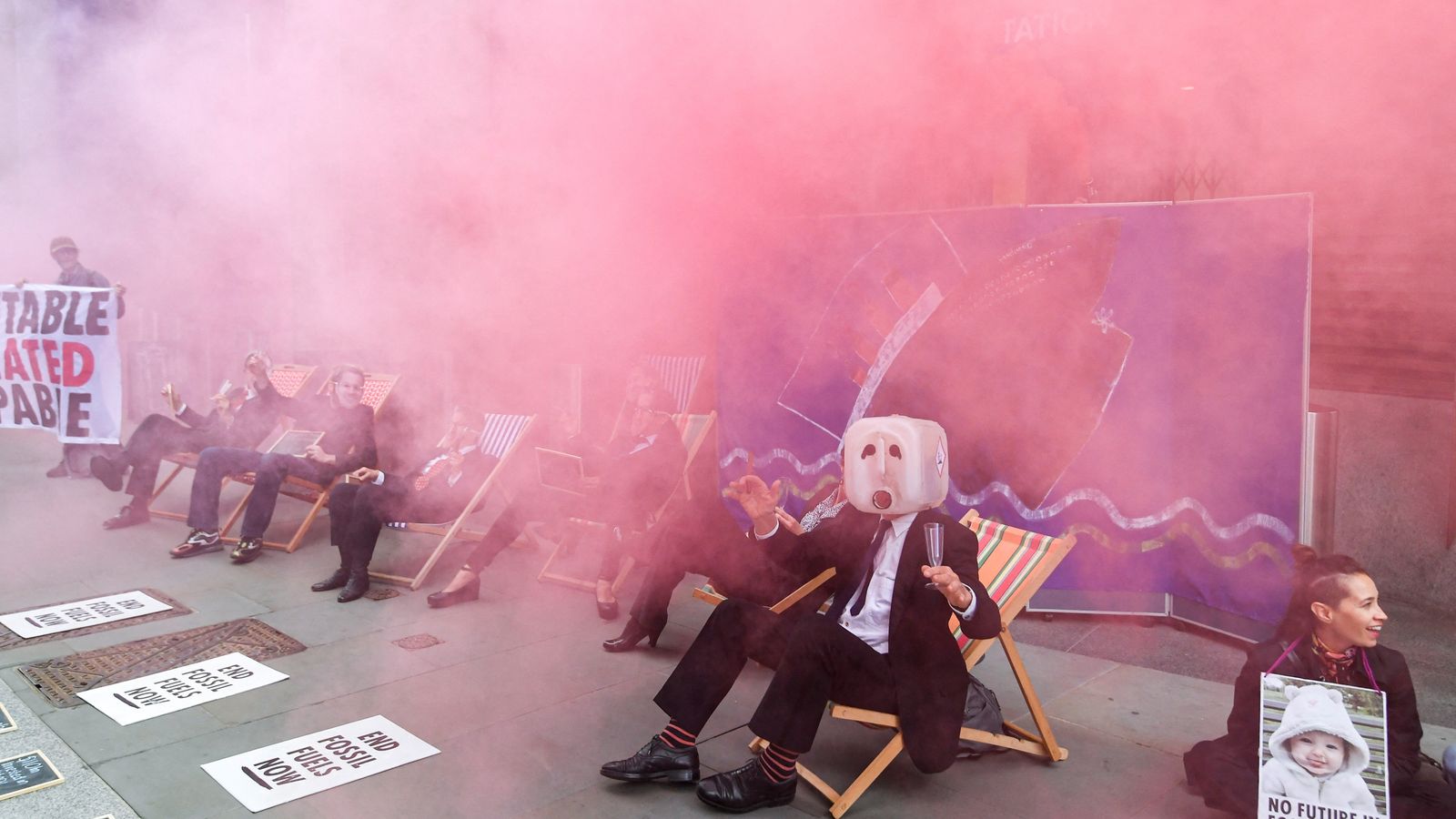Extinction Rebellion activists and dozens of other environmental groups have vowed to “step up campaigns in new and inventive ways” unless the government agrees to enter talks on two new demands.
During a joint news conference today, Extinction Rebellion, Global Justice Now, Don’t Pay UK and PCS Union issued two “ultimatums”.
They reiterated a so far unsuccessful request to ministers to end all licences, funding and approval for new fossil fuel projects, and they asked for the creation of new “emergency citizens assemblies” to give people a say in ways to tackle the climate crisis.
The campaigners said they are bringing together over 200 organisations, including Greenpeace, as well as further community groups for a mass gathering in London this weekend.
“We must unite to survive,” said Marijin van der Geer from Extinction Rebellion ahead of the event, which they are calling The Big One.
The four days of protest, from Friday to Monday, “are not intended for public disruption”, they said.
But as 28,000 people had signed up online so far, they said, travel could be disrupted, and acknowledged the capital would be busy with the London Marathon taking place on Sunday.
Watch live: Extinction Rebellion hold news conference on mass protests
I’m a bad vegetarian who sometimes breaks the rules. Could lab-grown steak be the answer?
‘Pristine’ coral reef discovered in Ecuador’s Galapagos Islands
If the government does not agree to start talks on their two demands by 5pm Monday 24th April, they said they would have “no choice” but to call on all those attending over the weekend to step up their protests.
Read more:
3D-printed steaks and cultivated meatballs – how does lab-grown meat really taste?
Protestors halt play at World Snooker Championship
The escalated protests would take three forms, they said, which include joining picket lines “in solidarity” with strikers and organising locally.
They also threatened “to disobey”, keeping any further details on how they would do this under wraps. Ms van der Geer said they had “more important things to do” than target the upcoming coronation of the King.
But, pushed by journalists on what their “new and inventive” ways of campaigning would involve, they remained vague, saying it would depend on the person.
“It could well mean direct action or civil disobedience, but it’s not going to be the same for everybody… There are many, many different tactics” said Nick Dearden from Global Justice Now. Another could be mobilising supporters to target government, he said.
Luke Tryl, UK director of research consultancy More in Common, said previous extreme tactics by groups like Extinction Rebellion had put some people off the climate movement.
“In fact only 22% of the public say they think Extinction Rebellion has been a force for good, and there is a real danger that a further round of disruptive protests will ultimately do more harm than good for the cause of motivating climate action.”
It follows a string of high-profile event disruptions by environmental campaigners.
In just the last week the Grand National was disrupted by Animal Rising activists, protesting the “gamble” with horses’ lives, and a Just Stop Oil campaigner covered a snooker table with orange dye at the world championships.
At the start of the year Extinction Rebellion announced they would change their tactics to “prioritise attendance over arrest and relationships over roadblocks”, shifting away from disruptive tactics such as gluing themselves to trains.
They denied they had since changed their minds, saying in the meantime they had redirected the target of their protests from ordinary people to the “pillars of power” like the courts and the government, following feedback their tactics were putting people off.
But they said other groups in the network may choose to continue with protests that disrupt the public.
Watch the Daily Climate Show at 3.30pm Monday to Friday, and The Climate Show with Tom Heap on Saturday and Sunday at 3.30pm and 7.30pm.
All on Sky News, on the Sky News website and app, on YouTube and Twitter.
The show investigates how global warming is changing our landscape and highlights solutions to the crisis.






















